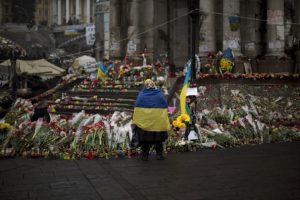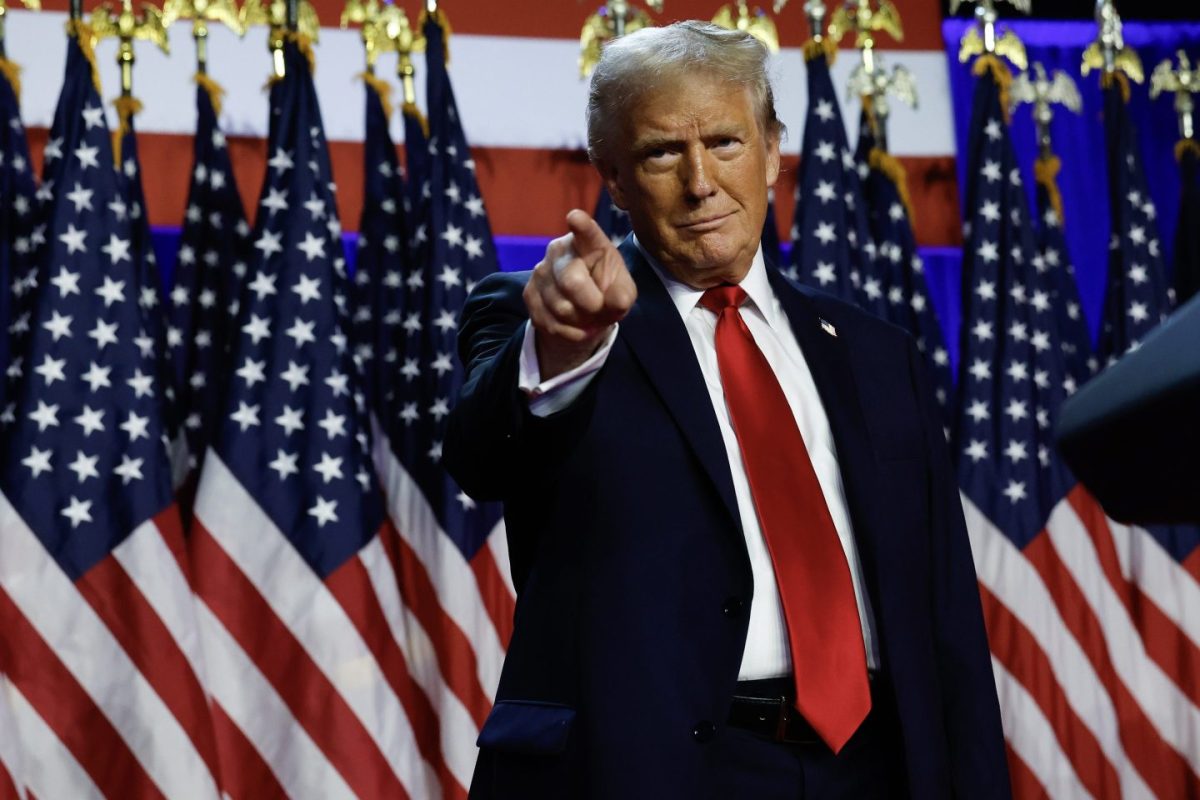 The amount of University of New Haven students who are unaware of what is going on in the Ukraine is too damn high. While sipping on $1 beers and munching on $0.25 wings Thursday night, I explained to my friends what is happening in the Ukraine. With the aid of plenty body movement and letting my hands speak too, I was able to not lose their interest within the first minute. It’s important to know what happens around you, even if you’re not in near proximity of events with an impact. For instance, the situation in the Ukraine doesn’t only affect Ukrainians. As you read on, you will realize that global political relations, international laws and economy are influenced.
The amount of University of New Haven students who are unaware of what is going on in the Ukraine is too damn high. While sipping on $1 beers and munching on $0.25 wings Thursday night, I explained to my friends what is happening in the Ukraine. With the aid of plenty body movement and letting my hands speak too, I was able to not lose their interest within the first minute. It’s important to know what happens around you, even if you’re not in near proximity of events with an impact. For instance, the situation in the Ukraine doesn’t only affect Ukrainians. As you read on, you will realize that global political relations, international laws and economy are influenced.
Plus, it’ll make you sound smart when you talk to people older than you. Knowing about current events can help you form your own, polarized opinions that set you apart from the rest. Here’s what you need to know about the Ukrainian revolution.

Ukraine had been under Soviet control back in the glory days of the Soviet Union. Ever since the union didn’t work out, the country has been trying to get back on its financial feet but struggled. For a while now, many Ukrainians aspired to join the European Union in order to prosper its economy and take advantage of other benefits of being a member. Imagine the anger felt by these people when President Yanukovych rejected a far-reaching accord with the EU in November 2013 because of his strong ties with Russia. Overnight, protests broke out into Independence Square, known as the Maidan, in the capital of Kiev. The BBC reports that since it began, developments include, “police attacks on student protesters, severe new anti-protest laws, and the abduction and beating of opposition activists – caused the demonstrations to spread and intensify.”
Photo is of a woman wearing a Ukrainian flag stands at a memorial for people killed in clashes with the police at Kiev’s Independence Square, Ukraine, Monday, March 3, 2014.
After that, it became less about joining the EU and more about having the President removed from the parliament. But he clings on to his powers and serves Moscow like he’s its personal Butler. After he went into hiding in Russia for a couple of days, the Ukrainian scene resembled an environment of war upon which he announced that he is still the President and vows to serve his country. Yet he wouldn’t dare to go into Kiev today in fear of his wellbeing. I would advise him to stay out of there as well and listen to his people’s demands before shedding any more blood. Democracy? Yeah right, that’s not what the Ukraine seems to be acting like.
A dramatic turn overtook on Feb. 18, when the Parliament speaker rejected the debate on changing the constitution and, as consequence violence crashed in Kiev. It’s also important to consider the many ethnic groups present in the Ukraine. The east and south of the country consist generally of Russian-speaking ethnic Russian majorities who identify themselves more with Russia, while the West and North dominantly speak Ukrainian who identify more with central Europe.
Now global super powers such as the U.S., Germany and other EU members fear that the country will split in two. Russian President Putin invaded Crimea in the East last week. Then, he encouraged Crimeans to hold a referendum that will take place on March 16, to decide on whether they will join Russia or not. Crimea’s parliament has already voted unanimously for a yay. Nonetheless, the referendum would violate international law. As a result of the military intervention, the U.S. imposed sanctions such as bans on travel to the United States and freezing Russia’s American assets. The EU condemned the actions illegal, but only took minor steps to sanction Russia. That’s because much of Europe’s natural gas comes from Russia; a key player in the industry. A new alternative was found quickly: while it’s more expensive, gas suppliers such as Qatar and Norway produce liquefied natural gas (LNG). That would give European importers more power. On an even better note, the U.S. is looking into exporting its natural gas too, which will undercut Putin’s power as well.
Putin should be alarmed by a potential gas crisis. More than a third of its gas is consumed by Europe, and that’s a big number as 65 percent of Russia’s exports are compromised of oil and natural gas. Another third serves local consumption, and 10 percent serves Turkey alone. But neither superpower wants the gas crisis to develop (even though planning doesn’t hurt) and contemplate their mutual-dependency.
The Guardian claims that, “events in Crimea have the potential to turn Ukraine into Europe’s worst security nightmare since the revolutions of 1989.” A war between Ukraine and Russia thus is highly likely, given Russia’s history of lust for wrest controls in other Slavic countries. As it was in Yugoslavia, it would be an unfair fight. Ukraine’s military machine (130,000 troops) doesn’t level Russia’s (850,000 troops) one bit.
Time and effort will show how this revolution/coup will play out. Propaganda naturally plays a large role in such situations. While Europe and the U.S. fear a Soviet re-Union, Russia claims that Europe is tempting the Ukraine by promoting the benefits that will come with a membership. Despite some bias here, I hope you have been able to give it some thought. It will be marked in history books after all, and you don’t want to be flabbergasted when your child comes up to you and asks, “Mom/Dad, what happened in the Ukraine back in 2014?”



